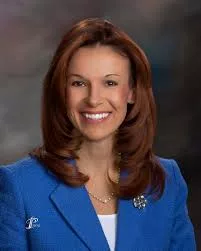
BISMARCK, N.D. (NewsDakota.com) – State School Superintendent Kirsten Baesler is urging North Dakotans to review and provide feedback on a newly developed state process aimed at improving academic performance in schools that have consistently underperformed for three or more years.
The process, known as ND FIRST (Fostering Improved Results for School Transformation), was established through Senate Bill 2254, which was passed by the Legislature in April 2023. The legislation grants the Department of Public Instruction (DPI) authority to supervise schools identified as needing “comprehensive support and improvement,” a designation reserved for schools in the bottom 5 percent of performance benchmarks over a three-year period.
While some states allow for direct intervention in the operations of underperforming schools, North Dakota has historically been hesitant to take such measures. Opponents of SB2254 argued that the bill would expand state control at the expense of local autonomy, but supporters maintained that it would promote accountability and support students’ educational needs. The bill passed both the House and Senate with strong support.
Baesler emphasized the importance of addressing long-standing academic challenges. “The objective of this process is to provide comprehensive assistance to schools that have been underperforming for years. We need to take steps to help these schools and make sure our students receive the education they deserve,” Baesler said in a media release. “Our students, our families, and our taxpayers deserve better.”
Since the bill’s passage, the DPI has worked with educational leaders and stakeholders to gather feedback on the implementation of ND FIRST. Amanda Peterson, the department’s director of educational improvement and support, has welcomed additional public comments, which can be submitted through the NDDPI website. Materials explaining the process are also available on the ND FIRST webpage.
Under the new process, the DPI will establish agreements with schools needing improvement, which will include evaluations of previous efforts and plans for future progress. These agreements, known as “memorandums of understanding” (MOUs), will involve input from teachers, administrators, school boards, and the community.
Schools currently identified for comprehensive support and improvement were designated in September 2022. New agreements with schools that remain in need of support beyond the current three-year cycle will take effect in August 2025. The legislation allows Baesler to closely supervise schools still requiring intervention, with the authority to mandate changes in spending, operations, and staffing.
Baesler is required to provide annual updates to the Legislature’s education committees and the Board of Public School Education. Recently, Peterson briefed the interim Education Committee on the steps taken to implement the new law.
